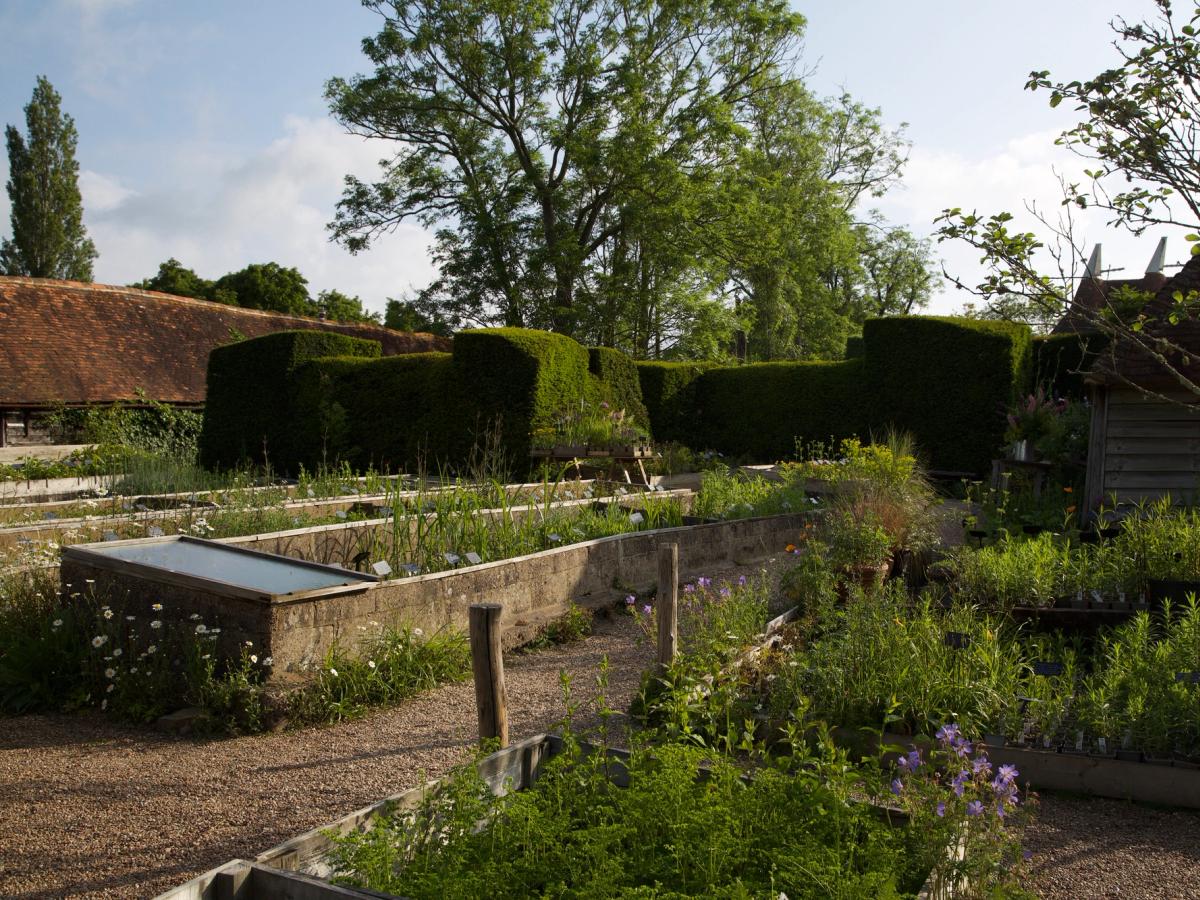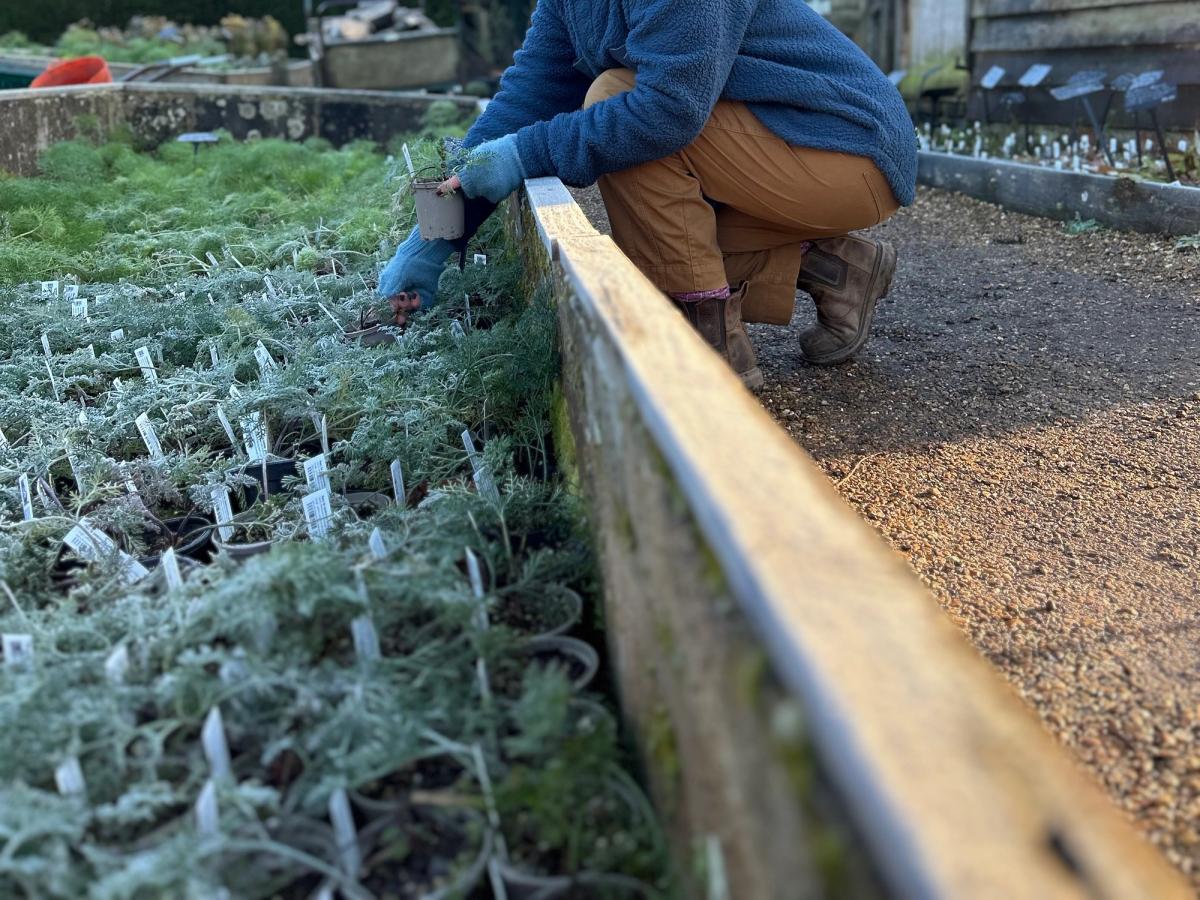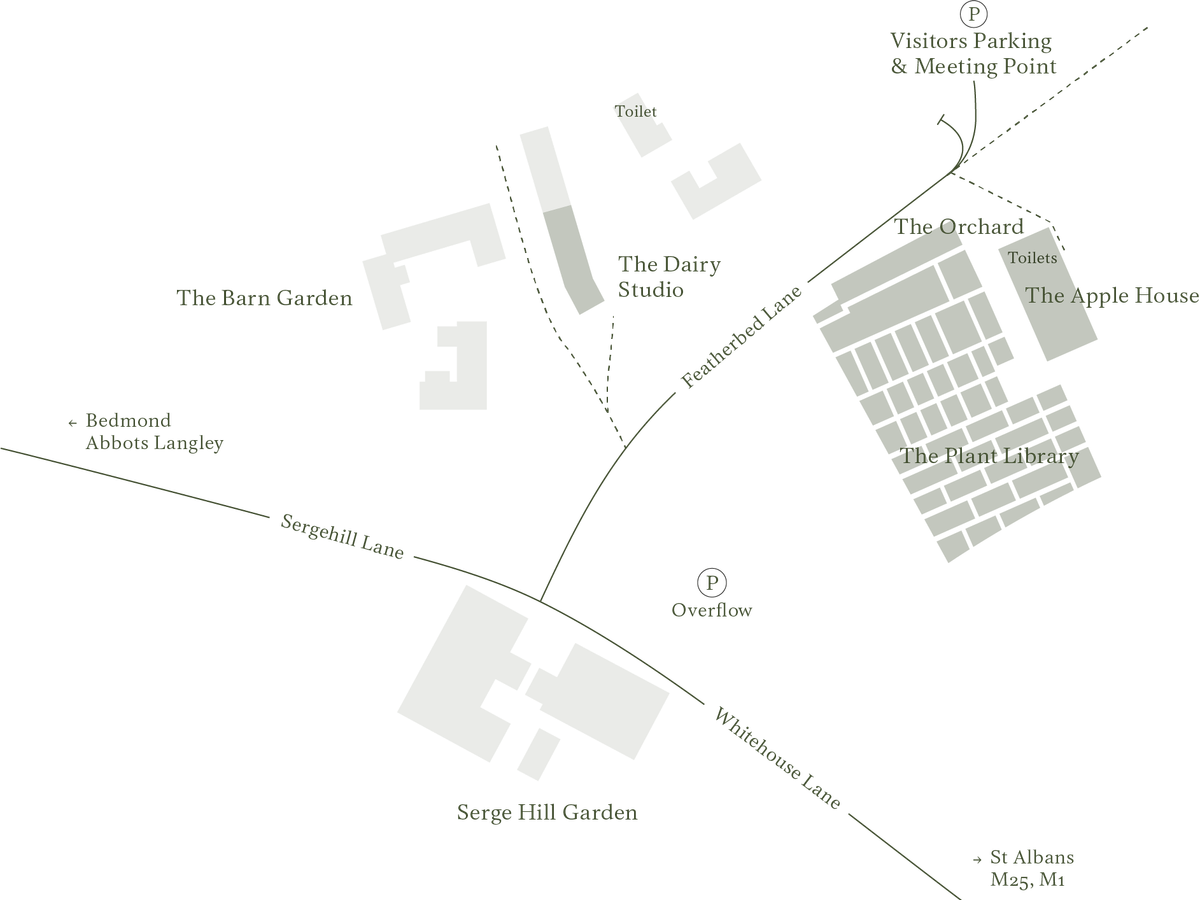
In the third and final of our series of practical propagation workshops, join plantswoman and propagation expert Becky Reader of Great Dixter garden and independent nursery, alongside the Plant Library Head Gardener Millie Souter to learn everything you need to know about late autumn / winter propagation including taking root cuttings, hardwood cuttings, bulbs and layering.
Learn the practices and principles of how new plants grow from hardwood and root cuttings, when and how to take them, as well as compost, timing and aftercare. Then, practice the techniques using plants from The Plant Library of over 1500 perennials and bulbs, and The Barn Garden, to take cuttings with you to grow on at home.
Each workshop includes refreshments, materials and handouts and can be booked individually, or together as a course.
All profits go directly to fund the work of the Serge Hill Project for Gardening, Creativity and Health Community Interest Company.

Information
About Becky Reader
Since changing career more than 10 years ago from lawyer to gardener Becky has had various roles working for the National Trust, and has also spent time in a small family run nursery as well as teaching horticulture at The Glasshouse, a social enterprise helping to rehabilitate female prisoners. She is now part of the Great Dixter Nursery team where she can combine her love of propagating high quality plants, sharing the joy of growing with students as part of the Dixter scholarship scheme and working in a historic garden renowned for its beauty, biodiversity and experimentation. She loves the play between chaos and control that is part of the Great Dixter ethos, respecting the past but not being afraid to push forward. " At Dixter we use traditional techniques which can easily be replicated on a smaller scale and encourage everyone to have fun and build confidence while learning."
About The Great Dixter Nursery
The Nursery was started by Christopher Lloyd in 1954, specialising in plants he deemed garden-worthy. This is a charming part of Great Dixter with wooden potting sheds now housing the Nursery shop. They remain a small, personal, and professional nursery. When Christopher first started the Nursery he used cold frames and glasshouses, they still raise plants using these methods today.
They are proud to make their own peat free compost, based on the John Innes formula. Sterilised loam, grit, composted bark, and fertilizer are the ingredients they use. They have been peat-free for about 10 years. Their loam is turf collected from surrounding fields which are cut, stacked, and left to mature, before being tilled, graded, and sterilised.
Propagation Workshop Series
Join us in the Plant Library of over 1500 perennials and bulbs throughout the year for a series of 3 practical and hands-on propagation workshops, with some of the UK’s top nurserywomen including DERRY WATKINS (Special Plants Nursery), HANNAH FOX (formerly of Marchants Hardy Plants now of Bright Green Fox micro nursery) and BECKY READER (Great Dixter Nursery) alongside our Plant Library Head Gardener MILLIE SOUTER.
Across our Spring, Late Summer and Autumn/Winter workshops, you’ll learn all the basic principles and practices of plant propagation as our horticultural experts share everything they know about the best techniques and timings for taking cuttings, collecting and sowing seeds, layering, divisions, plus growing techniques and more. There will also be time for questions.
Propagating your own plants, whether from seed or by cuttings, is the most joyful, cost-effective and sustainable way to grow the plants you love, time and again.

Accessibility
Accessible parking for those who require it is available at the entry to The Apple House. There is step-free access to the building and all areas. However, there are many potential trip hazards and uneven surfaces that may be encountered whilst visiting the gardens, along with gravel paths that aren’t suitable for walking frames with wheels. Please be aware that due to the ongoing building works around the Apple House, there may be additional hazards to look out for.